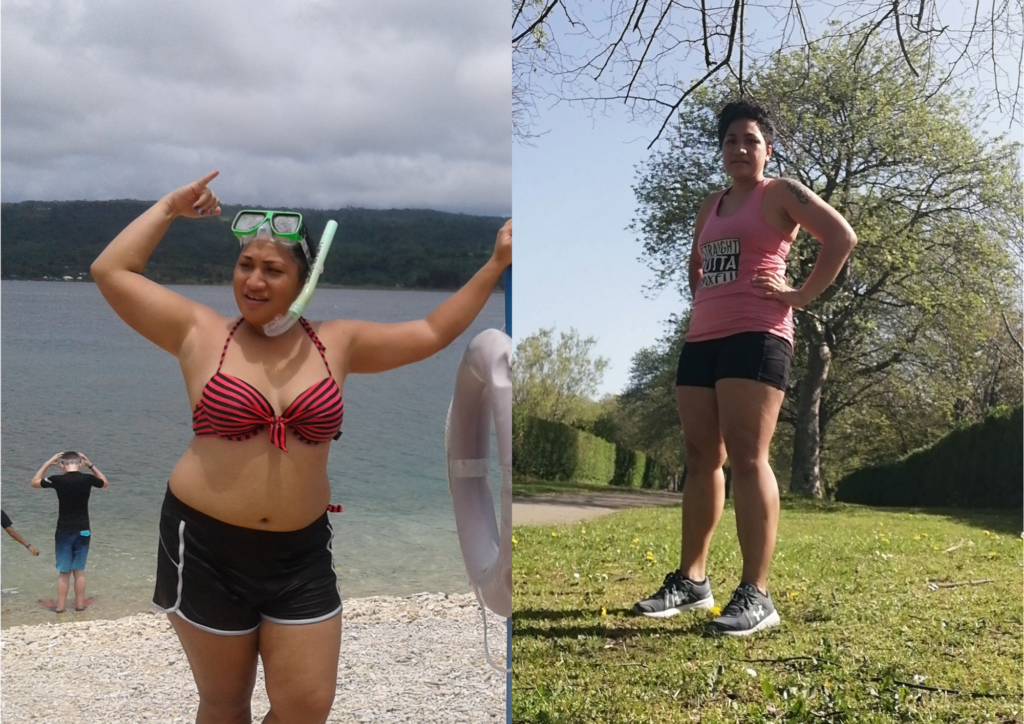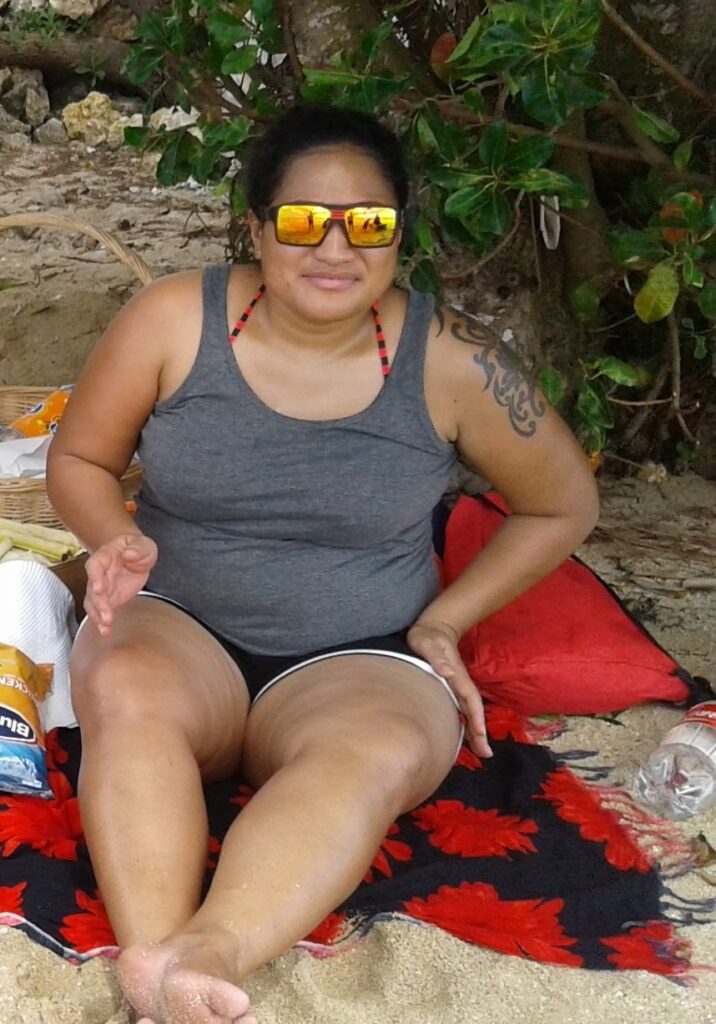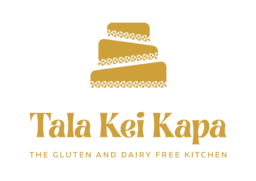To have the ability to control my desire for food, I think, is one of the greatest skills I’ve learned on this journey. Sometimes our own desires for food and our lack of self-control are our worst enemies. This year will be my sixth year on the gluten free diet since being diagnosed with intolerance to gluten and oats in 2016. I have been on a gluten free diet alongside my husband, Moji, who is intolerant to dairy and follows a strict dairy free diet. You can read his story here. It hasn’t always been easy for us. When we first started, we couldn’t stick to our diets completely.

One of the hardest part about going gluten free is being misunderstood by almost everyone. Sometimes our food intolerances would be brushed off as a miniscule issue and labelled as “nothing too serious”. There is this common belief that we are somehow making it all up and/or exaggerating. We’ve been ridiculed, discouraged, and often told that there’s nothing really wrong with us because “we look fine”.

Since starting Tala kei Kapa in 2018, we have connected with so many people with different food hypersensitivities (food allergies, food intolerances and coeliac disease). Some have shared with us their experiences of being misunderstood, ridiculed, and receiving very little to no support. Food hypersensitivities seldom receive attention in our society and there’s a lot of criticism, scepticism and ridicule around it. As a result, people are so reluctant to talk about the struggles they face living with one or more food hypersensitivity. People will also deny that they have any food hypersensivities because they feel ashamed. It is for these very reasons that I am sharing my story, to shed some light around the issues associated with gluten intolerance. I have split my story into two blog posts because one blog would be too long for one sitting.
How it all started..
After Moji was diagnosed with gout and multiple food intolerances in 2015, I watched him gain his life back by going through treatments, making the recommended changes to his diet and lifestyle. His life transformation got me thinking that maybe I should go to the doc and see if I have any health issues I was unaware of. I didn’t think I had any eventhough I weighed over 100kg. So, there I was in our doctor’s clinic in Flagstaff towards the end of 2016. I got there and opened my big mouth stating I’m healthy without any illness and that I hardly get sick. Confused as hell, the doctor wondered why I was there in the first place. To get a baseline, I was asked so many questions that included my family history, medical history, sleep quality, bowel movement, energy level, focus etc. To be honest, I had never been asked so many questions by any medical practitioner, usually they start scribbling a prescription before I finish talking. From those questions alone, we identified some of my symptoms that I didn’t even know were symptoms of anything.
So, what were my symptoms? (listed in order of priority from low to highest or from how small or big it affected me)
Tingling and numbness of hands and feet; bruxism; constipation; abdominal, back and joint pain; lethargy; brain fog; iron deficiency; bloating; diarrhoea; leg cramps and swelling; and irregular menstrual cycle.
The symptoms we initially identified were tingling and numbness of hands and feet, bloating, lethargy (lacking in energy, often feeling lazy), irregular menstrual cycle, brain fog (difficulty thinking), diarrhoea and cramp/swelling on my calf muscles. I was told that these are symptoms of food intolerances. To rule out or confirm any intolerances, we did a food test to confirm if any foods I was consuming were causing inflammation in my body. The test confirmed that I am intolerant to gluten and oats. It was quite surprising to find out that I wasn’t as healthy as I thought, and that I lived my entire life with so many symptoms that seemed normal. We never think of these symptoms or signs of being ill. Often when we think about illness, we think about coughs, flu, fever, congested throat and nose and being bed ridden because they are common illnesses.
Lethargy (low energy, feeling lazy), brain fog (difficulty thinking) and fatigue (feeling tired all the time) are common symptoms of gluten intolerance and coeliac disease and I had all three. I used to refer to myself as a ‘sleepy head’ because any opportunity to sleep during the day, I’d sleep. It’s like I could never have enough sleep. Sometimes, even though I’d sleep 6-8 hours I’d wake up still feeling tired as if I only slept for 30 minutes. When I think back to when I was in high school, uni and even when I was working full time, there would be certain times during the day, my energy level would just drop and I just want to sleep. A lot of times at work, I’d feel so exhausted by 11am and I’d have trouble concentrating and thinking. When I used to come back home from school or work, I’d be so tired. It’s like every day I was just so drained and exhausted. And I’d be so moody. Sometimes, I would be so tired even though I didn’t really do much to be that exhausted, but nevertheless I was extremely exhausted. I relied heavily on beer and wine to pick me up in the evenings and coffee in the morning. There have also been a couple of times when I had iron deficiency which also amplified my exhaustion and fatigue.
From time to time, I would either have stomach, back or joint pain. They were very sharp pain that would last between a few minutes to a few hours. When I get stomach pain, it feels like my stomach is being squeezed and twisted into knots and could last for a few minutes to 2-4 hours. Stomach pain was pretty common for me, and it got to a point I sort of got used to it. Most of the time, I’d attribute my pain to not stretching properly, not exercising frequently or maybe a fly stood on my food. It’s crazy how it was so much easier to think that the pain was caused by anything other than the food I chose to eat. I ate bread and crackers every day, so I always had some sort of pain but I’d just brush it off.
One of the most common symptoms of gluten intolerance is bloating (gassy stomach). Bloating was part of my life and it just seemed normal to me. As a teenager, I used to be quite slim, but I almost always had a small beer belly. When you’re bloated, gas builds up in your stomach and if you don’t let it out, it’s going to create a mountain of a stomach. Oh, I remember times when I would be farting like nobody’s business thinking it could be the coconut cream I had or the cheese. But no, it was actually all the bread I ate. When I think back to the times diarrhoea started becoming frequent, it almost always followed once I started getting bloated. Sometimes it could be within 20 minutes or a few hours depending on how much gluten was in my food. I’ve always thought of diarrhoea as a bad process, but I’ve learned that it’s our body’s way of removing things that shouldn’t be in our body.
The symptom that I hated the most was the leg cramps I used to get around 2 or 3 am. I may miss bread so much, but I definitely don’t miss leg cramps. My leg cramps were very painful and debilitating. If I had leg cramps, my calf muscles would be swollen for the next couple of days. And if it was severe, I wouldn’t be able to exercise, go for long walks, run or swim. It was impossible for me to run 100m non-stop because my calf muscles would pull and harden around the 20-30m mark. I’d stop three to four times and stretch, thinking that’s what I needed to do to relieve the pain, not knowing my legs were swollen. And this is not good, because overstretching swollen muscles can cause injury. Despite wanting to play sports and be active, I couldn’t do much. In high school and as an undergraduate student, I played netball, but I would always lag behind in training because of my legs. No amount of stretching helped. I also used to have leg cramps when I’d go swimming, so I would often try to stay close to the shallow side. Nobody wants to drown from leg cramps. Even though I love being in the water, I can never swim long distances because I’d always have leg cramps. In 2013, I joined the Teufaiva bootcamp in Tonga. We’d run around 2 to 3 blocks for fitness tests, and it was so difficult for me because I’d have to stop so many times to massage my legs. Every coach and personal trainer I have worked with always told me to stretch, sometimes telling me off thinking I didn’t stretch properly. It never occurred to me or anyone that it could be caused by the food I was eating. It’s like we love and worship our food so much, we refuse to believe the possibility that food can harm us more than it is nourishing. In my case here, the problem wasn’t stretching, it was the debilitating effect gluten had on my calf muscles. I think it’s important for personal trainers that design nutritional plans for their clients to find out whether they have any food hypersensitivities. If gluten is a problem for them, it shouldn’t be in their meal plans, the same for any other allergens.
All of these things were a part of my life and it just seemed normal. But those were signs that I was really sick and my body wasn’t functioning normally. I also realised that the severity of my symptoms were also getting worse as I was growing older. My reactions were much more immediate and frequent. I started noticing I wasn’t performing as much as I should at work because I was always tired.
The gluten free diet
On my first appointment I wasn’t given any medication or any treatment. I was advised to start removing any food that contains gluten from my diet. Our ultimate goal was to reset my body to a more balanced state by strengthening weakened areas. So, we started with my gut because the idea is that, if the gut is compromised, the body becomes unbalanced affecting the function of other organs. Following a gluten free diet would allow my gut to heal and consequently relieve me from constant bloating, diarrhoea, lethargy, brain fog and stop the swelling on my calf muscles and leg cramps. I was also advised to keep track of my menstrual cycle, taking note of how long each cycle took, how light or heavy the flow was and how I was feeling before, during and after each cycle.
When I got home that day, I immediately declared I was going off gluten. It just felt like the right thing to do. Basically, gluten is a protein that is found in wheat, barley, rye, triticale (a cross between wheat and rye) and is used as a thickener and binder in many foods such as soy sauce, ice cream, noodles, buns, bread, chips, beer, processed meats and many other processed foods. At the time, I was working full time and pursuing a master’s degree part-time and survived on cheap convenient food that was full of gluten. And I just thought “Man! If I fell seriously ill as a result of my food choices, it would be my own doing, and that would be selfish not only to myself but to my family as well”. It also got me thinking, what’s the point of pursuing further education, if I’m just making poor life choices. Doesn’t it defeat the purpose of an education and contradict the purpose of learning, growing and living? Moji and I had to really rethink and adjust our household dynamic and lifestyle. We changed how we shopped; relooked at what we bought and ate, where we ate and events we attended. I was so used to having bread or crackers for breakfast, so the adjustment was not easy. I’d wake up in the morning and cook either kumala, taro, potato, cassava and have it for breakfast with eggs, chicken, sometimes steak or any leftover dinner. As time went on, there were days when I craved bread and crackers. I tried some of the gluten free stuff sold at the supermarkets, but I never liked the texture and taste. They were either rubbery, crumbly, hard, dense and most of the time it’s like you’re just eating sugar.
The beginning of my baking journey
Prior to this, I never knew how to bake or cook anything. I was a one pot girl! lol I started reading up on the science of baking, gluten free ingredients and baking gluten free. I read articles, went through forums, watched cook shows, documentaries and everything I needed to learn to make my own food. Most of the online recipes called for ingredients and flour brands that I couldn’t find in Fiji. So, I had to try and make my own with ingredients that are locally available. I always thought to myself that if people overseas can do this, I can do it. Part of our new adjustment was ensuring that the food we made met both our dietary requirements so we can both enjoy it. At the time, Moji was intolerant to potatoes so I experimented a lot to get a flour blend without potato starch but can still hold a good structure. I found that most all-purpose gluten free flour blends are made from rice, corn, tapioca, potato with either chickpea, buckwheat, millet and xantham gum. So, I experimented with different ratios of each for a long time. By mid 2017, I finally figured out the perfect ratio of each flour and starch and developed my own unique gluten free flour mix. I have been hand mixing and using it to bake our gluten free and dairy free pastries ever since.



Learning to adjust to the gluten free diet
After the first two weeks of removing gluten from my diet, I started having regular bowel movements, I wasn’t bloated or constipated anymore and had no more diarrhoea. All was good until we were invited to a family bbq. When we got to the house, the smell of soy sauce marinated lamb chops filled the air, my nostrils and my stomach lol. I was starving! I knew I shouldn’t eat the chops because of the soy sauce, but I didn’t want to just have salad. So I ate two lamb chops. Fifteen minutes later we sat outside, and my stomach started making sounds as it was getting bloated. I tell you, it is such an uncomfortable feeling to be in another place other than your home, knowing you could be exploding in the toilet and everyone can hear from the roadside. I sat there pretending to listen to the conversations, but I was hard out regretting what I ate. Thank goodness we didn’t stay long. The drive home with diarrhoea knocking on my rear door was torture! From that day, I learned my first gluten free lesson – always eat at home before going to any event to avoid being hungry and tempted to eat food I shouldn’t eat! I do this even if I’m meeting up with someone for coffee, lunch or dinner.
Six months after my first appointment I was excited to go back to see my doctor. I had been off gluten for a while, and I was feeling amazing. I wasn’t feeling tired and lazy anymore. I wasn’t bloated and hardly got diarrhoea unless I accidentally ate something with gluten. The most obvious result at this point was that I wasn’t having leg cramps in the middle of the night and my legs weren’t swollen anymore. One time, I went with a friend to jog along Nasese and at first I wasn’t too excited because I still thought I’d have leg cramps. Dear reader, you cannot imagine the joy of running 1 km non-stop without any pain after years of leg cramps and constant swelling in my legs. It has been six years since I have gone off gluten and if you’ve seen me jogging around Albert park and exercising, these are the wonders the gluten free diet has done for me!
My first field control therapy (FCT)
On my second appointment, we ran some tests and my doctor conducted my first field control therapy (FCT), an alternative medical practice she specialises in. The treatment targeted my gut removing unwanted toxins, parasites and worms. After a few months from this treatment, I no longer had bruxism (grinding my teeth in my sleep) and the quality of sleep really improved. By sticking to a gluten free diet, I also noticed how sharp my brain was and how attentive I was at this point. My brain was always buzzing, always thinking. I was coming up with so many ideas at work and for my research. I also noticed my energy levels really improved, I wasn’t tired all the time like before. It was like somebody dropped a ball of energy on Moji & I and we were just so active.

We’d wake up in the morning and either go paddling or go to the gym around 5am, go to work, go to the gym again in the evening, come home, prepare dinner, talanoa for a bit, work on my research, sleep and repeat. I felt so energetic! For someone that couldn’t wake up early, it was surprising to be up at 4:30am rushing to the gym or rushing to go paddling and stay awake the entire day without feeling exhausted.
Dealing with people
When we started telling the people around us about our diets, we’d get really annoying reactions. Sometimes we’d hear “oh here comes the healthy family!”. In my early days of baking, you could tell the cakes were gluten and dairy free and it wasn’t as good as it is now. It had a different texture and taste, but I didn’t care. We’d take our own cake to an event because we wanted to have cake to eat as well. Most of the time, no one ate it except us haha, and they would say “oh that’s too healthy”. Sometimes, they’d still encourage us to eat the food we can’t eat and say things like “it’s just a little bit” or “I thought you’re fit, can’t handle food?” The most ignorant comment was “you guys are like palangis now”. It was like their goal was to make us feel we weren’t doing ourselves a favour, like our decision wasn’t a good one. For Moji and I, we live, breathe and believe in the gluten free and dairy free diet. And so, despite all the criticism and ridicule, we kept to our diet because our “why” was always superior! The fact that our traditional Pacific Island food is naturally gluten free and dairy free has been really helpful.
Sometimes, the people closest to you, will literally be the ones to put the nail in your coffin and then say “Man gone too soon”. Yet they won’t be honest with you or encourage you by saying, “you should go and see a doctor” or “you should lose some weight, I’ll come and run/walk with you” or “good on you for making changes to your diet”. They will feed you the food that they know will jeopardize your health and carry on with their lives. They will congratulate you when you graduate but when you make an educated decision to improve your own life, they will mock you because of their own ignorance, insecurities, and lack of determination and self-care. I’ve had to distance myself from so many people because we didn’t share the same values and our goals just didn’t align. If they weren’t talking about growth or change, I didn’t want to be around them. If they weren’t pushing themselves to be healthier spiritually, mentally and physically, I distanced myself. If they can’t push themselves, they won’t push you, they’ll just be a distraction.
If we look around, our people are dying prematurely at 30, 40, 50, 60 years old because they aren’t looking after themselves. That is a big problem in our society and those are things that I want to talk about. Our society pays more attention to global issues than issues at the individual level, issues that are within our control – like our individual health!
Bringing Tala Kei Kapa to life
Baking pastries for me, was something I wanted to do so that when I crave for a muffin, I can have a gluten free muffin instead of being tempted to buy something made from wheat. When I thought about baking and selling, I had no interest in making money. I still don’t. I revived Tala kei Kapa last year out of boredom, really. I had graduated with my second master’s degree in 2019, gave birth in 2020 and became a full-time mother. It all happened so fast, I went from a fast pace high achiever to slowing down and taking every day as it is as a mother. Being a full-time mom can be very lonely staying at home the whole day. And for me being a stay at home mom in Fiji made me miss Tonga so much. In Tonga, you always have company. You basically know your entire neighbourhood. Your aunt or cousin is just down the road. You want to chat with someone, there’s always someone to talk to next door. At the time, I needed to have some sort of connection with anyone and so I started posting on our Facebook page. Not long people started messaging our page in search of gluten free and dairy free pastries. They were looking for gluten free and dairy free stuff, I was looking for connection. I have very much enjoyed connecting with people online and at the Garden city market.
I’ve met parents with children that have food hypersensitivities, and they seem very disheartened. And it made me think about telling my story as a way of creating awareness and hope. Not everything has to be about money. For me, being diagnosed with gluten intolerance was not the end of the world, it was a real blessing and eye opener for my overweight indenial self. This has been an opportunity for me to slow down, evaluate my life choices, read food labels, listen to my body, adjust and fix the things within my control to improve the quality of my life. And the quality of my life has indeed improved!



Pingback: Fertility issues and gluten intolerance - Tala Kei Kapa
Hey which doctor did you consult with. I have allergic to wheat, soya, diary,egg,fish,nuts and shrimp. Life has been miserable with hives every other day.
Hi Anshika
Im sorry to hear about your condition. We consulted with Dr Theresa Yee Chief. Let us know if you need anything from us.
Cheers
Mojito